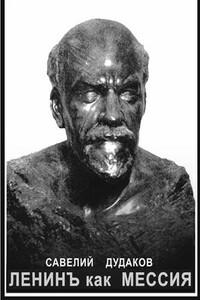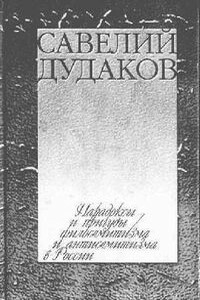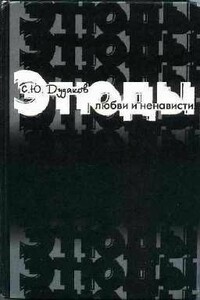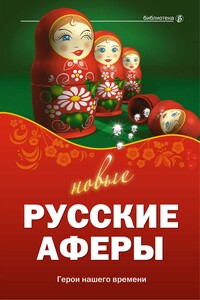This study is an original attempt to trace the messianic and literary development of anti-Semitic ideas in Russia which culminate in Sergei Nilus' The Protocols of the Elders of Zion. Previous scholars have focused on Western sources for this work. However, the elucidation of the specifically Russian nature and sources of The Protocols has been neglected.
In fact it is not European works like those of Radcliffe, but rather Russian ones (such as the memoirs of Przhetslavskii and the novels of Krestovsky) which are the real sources for Nilus. Ideological sources, as well as literary ones can be found in the Russian context. Pan-Slavism, derived from Pan-Germanism, juxtaposed Russia and its values first to France and then to Germany. Toward the end of the 19th century this ideology developed into opposition of Orthodox Russia with its messianic destiny to a supposedly Jesuitical-Catholic-Republican-Masonic AND Jewish capitalistic Europe.
In the early 20th century The Protocols were concocted by the tsarist police as a tool to combat growing revolutionary activity in Russia. This forgery is revealed to be the culmination of many trends in Russian socio-political thought
In Europe Nazi Germany took the lead in setting itself up as the leader of the opposition to the Judeo-Masonic conspiracy, now viewed as including the Bolshevik enemy. Echoes of The Protocols are shown to be frequent in recent Soviet anti-Semitic (anti-Zionist) literature.
The present investigation of the sources and ramifications of this conspiracy is based on an analysis of a very broad range of historical and literary materials hardly known even to specialists.
The influence and continuity of anti-Semitic myths within Russian culture is presented in a chronological framework including: 1) an introduction dealing with anti-Jewish literature of the Uth-15th centuries; 2) social and political ideas from the late 17th to the early 19th century; 3) the ideological and literary expression of anti-Semitism in Russian belles-lettres of the 2nd half of the 19th century; 4) conservative-reactionary literature in late tsarist Russia as a reaction to the threat of revolution; and 5) The Protocols of the Elders of Zion in 20th century totalitarian societies, Soviet, Nazi, and Arab.
Абрамович 28
Агриппа Корнелий 79,93
Агурский М.С. 231
Адамович М. 48
Айналов Д.В. 32
Аксаков И.С. 99
Аксаков СТ. 79, 93, 233
Д'Аламбер31
Алданов М.А. 242, 259
Александр I 26, 35, 40, 42, 44, 46, 47, 52, 58, 60, 61, 73, 83, 84, 94, 111, 198, 233, 238-240, 242
Александр II 34, 99, 102, 104, 110, 111, 113, 115, 117, 119, 120, 122, 237
Александр III 122,149, 172, 178,251
Александра Федоровна 148, 267
Александровский Б.Н. 229, 233
Алексеев М.В. 260
Алексей Михайлович 18, 19, 34
Алтаев Ал. 259
Альвардт Г. 145
Амальрик А. 213
Амартола Георгий 10, 32
Амвросий (Оптинский)160
Амфитеатров А.Ф. 175
Андрей Боголюбский 12
Анна Иоанновна 205
Ансело 74
Антоний (Бочков) 160,168,233
Аракчеев А.А. 54, 57, 78
Арндт 25
Архаровы 41
Аскенази Ш. 41, 60, 94, 233
Афанасьев В.В. 51, 61, 78, 93, 233
Ахад-ха-Ам 269
Ахматов В. 187, 188, 201, 233
Багговут 44
Багрицкий Э.Г. 223
Байрон Дж. 64
Баженов В.И. 62, 203, 204, 229, 238
Бакст Н.И. 150
Бакунин М.А. 216, 252
Балашов А.Д. 44
Бальфур Артур Дж. 233
Бамбергер Д. и Л. 28,29
Башилов Б.35, 36, 233
Барклай де Толли М.Б. 44, 54, 62
Бартенев П.И. 96
Бартенев Ю.Н. 53
Безобразов 50
Безыменский А.И. 218
Бейлис М. 39, 40, 198, 219, 266
Белинский В.Г. 70, 73, 93, 233
Белый А. (Бугаев Б.Н.) 170
Бёме Я. 18, 19, 53, 166
Бенеш Э. 175
Бентам И. 37
БенуаА.Н. 131,233
Бенц А.И. 175, 198, 233
Берг 82, 83, 121
Бергельсон Д.Р. 204
Бердяев Н.А. 268
Берлин Н.Б. 49
Берлин П. 61,233
Берлин С. 50
Бернстайн X. 268
Бестужев Н.А. 78
Бестужев-Марлинский А.А. 248, 249
Берхин И.35, 233
Бецкой И.И. 23
Бешт И.(Ба'ал-Шем-тов) 87
Биконсфилд см. Дизраели Б.
Бисмарк О. 177,191
Бистром 44
Бицин Н. 96,130,233
Блаватская ЕЛ. 167, 259





